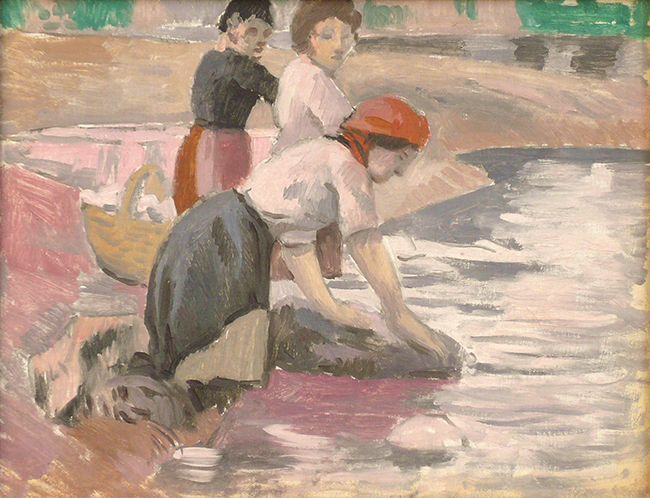Hugo Troendle
1882 Bruchsal/Germany – 1955 Munich/Germany
Alongside Georg Schrimpf, Alexander Kanoldt and Max Unold, Hugo Troendle belongs to the „idyllic“ representatives of the New Objectivity. In opposition to the biting social criticism of his contemporaries Otto Dix or George Grosz, he rather had a conciliatory view on his main topics: rural life and work.
Hugo Troendle was a member of both the Munich New Secession (Münchner Neue Sezession) and the Association of German Artists (Deutscher Künstlerbund) as well as co-founder of the New Group (Neue Gruppe) after World War II. He actively participated in the art scene Schwabing/Munich and enjoyed telling anecdotes about it which he called “Troendeleien”. Moreover, he published essays on artists like Poussin or Degas. The National Socialists defamed his work as “degenerate art”.
From 1908 until 1912 Hugo Troendle was a student of Paul Sérusier whose influence as a former Nabis artist inspired him as much as the Cézanne legacy and the intense exchange with the young avant-garde that regularly met at the Café du Dôme.

 English
English Deutsch
Deutsch Русский
Русский